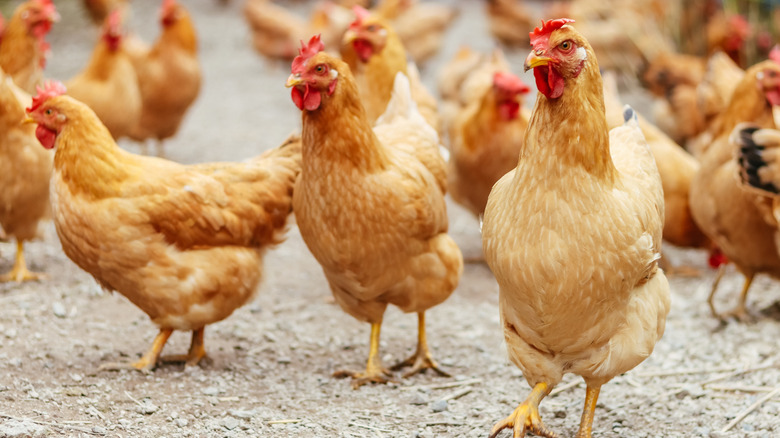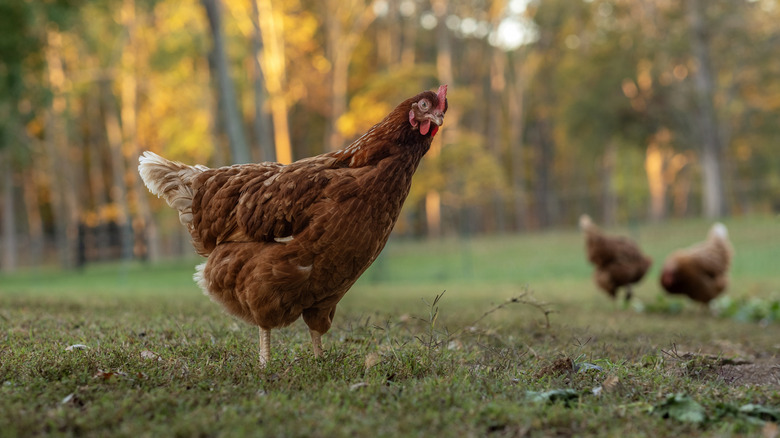What Does A Free-Range Label Actually Mean?
When you look at the label on a package of chicken or eggs, you'll often encounter the term "free-range," which describes the way the poultry bird was raised. You might picture hens frolicking around an idyllic green pasture all day, pecking at the ground to get at natural sources of feed. But is that really what the term "free-range" means?
The answer isn't quite as photogenic as it might seem. The term, according to the USDA, simply means the chicken was allowed "continuous, free access to the outside." And it only has to be for 51% of the chicken's lifespan, too. This means that the majority of the chicken's time could still have been spent indoors and in an enclosure, if not all of it. The bird would have simply been allowed some way to get to an outdoor space. But that practice can be loose — the quality of the outdoor space isn't specified, which means if a chicken only had access to a tiny rough patch of gravel, that still technically counts as free-range.
Realistically, the bird could still have existed in cramped, overcrowded areas, and so the term free-range might not exactly paint the entire picture of how it lived. The USDA doesn't drop into farms to enforce the practice, and simply requires that a company fill the information out on a form. And that makes the whole practice potentially even more opaque. In the end, then, the term "free-range" isn't necessarily a mark of high quality.
What does pasture-raised mean?
The term "pasture-raised" sounds nicer then, doesn't it? The thing is, it can potentially be just as dicey. Just like a free-range chicken, a pasture-raised one is allowed the ability to go outdoors as it pleases for most of its life. The USDA also doesn't check in on facilities to make sure this is happening, but penalties can still occur if it's found that a company is non-compliant.
Pasture-raised is still considered a higher standard than a free-range label, but the catch is that chickens naturally fear wide open space due to predators from above. Even if they have a big door that allows them to wander around outside, the birds may opt to stay inside instead. So, really, both "free-range" and "pasture-raised" aren't sure indicators of a high quality of life, it's just that the birds had the potential to be outside and do their thing. Whether or not they actually got the chance, you will likely never know. Unless, of course, if you raised them yourself.

